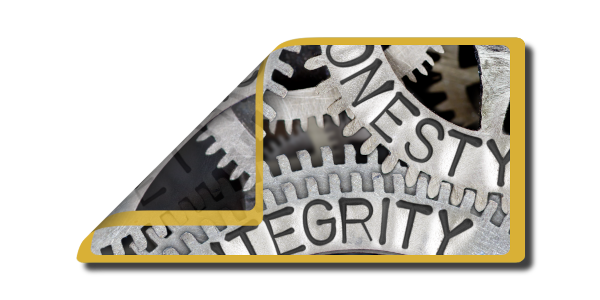Ethics at Work
May 30, 2024
We’re all presented with ethical choices—that is, those that require us to think about right and wrong—all the time in the course of doing our jobs. And the ethical decision isn’t always the obvious one. But the wrong choice could have serious consequences—for ourselves, our colleagues, and for our organization as a whole.
Some common areas of concern regarding workplace ethics are:
- Theft (from time theft to expense reimbursement manipulation to copyright infringement);
- Fraud—(from falsifying financial statements to price fixing to market division and customer allocation schemes to bid rigging);
- Bribery—(from kickbacks to nepotism to the Foreign Corrupt Practices Act [FCPA]);
- Human trafficking—(from forced labor to sex trafficking); and
- Environmental stewardship—(from waste reduction to land management)
Making decisions based on ethical considerations both bolsters self-respect in individuals and respect for organizations as a whole. It also builds trust within an organization. On the other hand, unethical decision making can result in such negative consequences for individuals and organizations as fines, loss of market share, even jail time.
Sometimes, when weighing what’s right or wrong, we’re at least tempted to do the wrong thing. Maybe it seems like no big deal or that no one will find out; maybe it feels socially awkward to contradict someone or to say no; or we’re just not sure what to do in a given situation. It’s not always easy to make the right choice.
So how can we encourage ourselves and others to do what’s right? When we’re faced with an ethical decision at work, it’s best to take a breath; evaluate the situation to the best of our ability; weigh the choices and their consequences; use our best judgment; follow our organization’s code of conduct, rules, and guidance; keep it legal; and listen to our conscience.
It’s important for organizations to encourage good decision making with a written code of conduct, and an expectation of ethical behavior. By being explicit about the value of ethics to your organization, and about the negative consequences of unethical conduct, you can better ensure that decisions will be in keeping with a legally compliant, respectful, equitable workplace. One in which participants will, more often than not, do the right thing.
Ethical Decision Making: Knowing Right and Wrong in the Workplace
